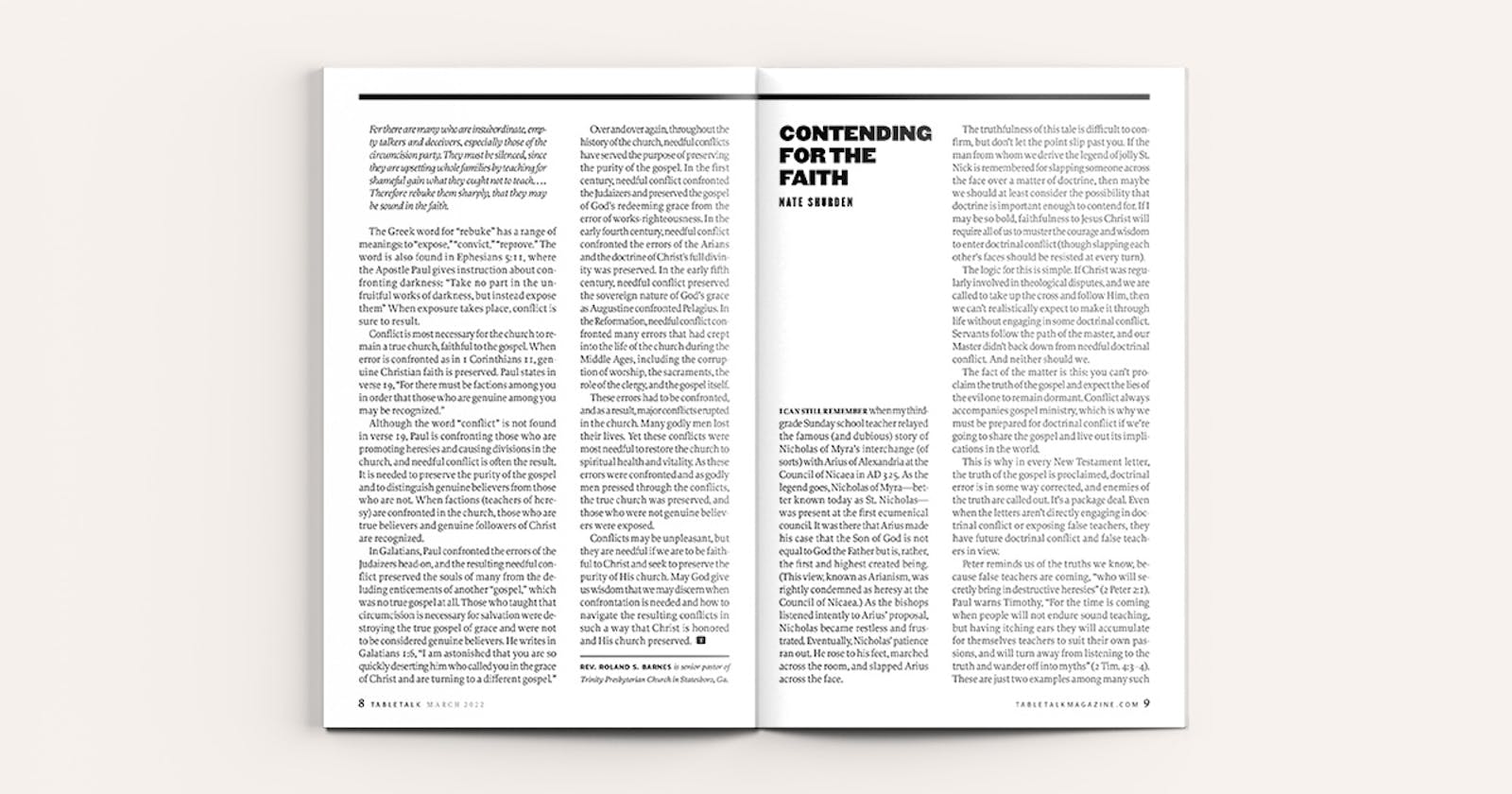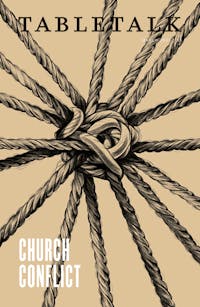
Request your free, three-month trial to Tabletalk magazine. You’ll receive the print issue monthly and gain immediate digital access to decades of archives. This trial is risk-free. No credit card required.
Try Tabletalk NowAlready receive Tabletalk magazine every month?
Verify your email address to gain unlimited access.
I can still remember when my third-grade Sunday school teacher relayed the famous (and dubious) story of Nicholas of Myra’s interchange (of sorts) with Arius of Alexandria at the Council of Nicaea in AD 325. As the legend goes, Nicholas of Myra—better known today as St. Nicholas—was present at the first ecumenical council. It was there that Arius made his case that the Son of God is not equal to God the Father but is, rather, the first and highest created being. (This view, known as Arianism, was rightly condemned as heresy at the Council of Nicaea.) As the bishops listened intently to Arius’ proposal, Nicholas became restless and frustrated. Eventually, Nicholas’ patience ran out. He rose to his feet, marched across the room, and slapped Arius across the face.
The truthfulness of this tale is difficult to confirm, but don’t let the point slip past you. If the man from whom we derive the legend of jolly St. Nick is remembered for slapping someone across the face over a matter of doctrine, then maybe we should at least consider the possibility that doctrine is important enough to contend for. If I may be so bold, faithfulness to Jesus Christ will require all of us to muster the courage and wisdom to enter doctrinal conflict (though slapping each other’s faces should be resisted at every turn).
The logic for this is simple. If Christ was regularly involved in theological disputes, and we are called to take up the cross and follow Him, then we can’t realistically expect to make it through life without engaging in some doctrinal conflict. Servants follow the path of the master, and our Master didn’t back down from needful doctrinal conflict. And neither should we.
The fact of the matter is this: you can’t proclaim the truth of the gospel and expect the lies of the evil one to remain dormant. Conflict always accompanies gospel ministry, which is why we must be prepared for doctrinal conflict if we’re going to share the gospel and live out its implications in the world.
This is why in every New Testament letter, the truth of the gospel is proclaimed, doctrinal error is in some way corrected, and enemies of the truth are called out. It’s a package deal. Even when the letters aren’t directly engaging in doctrinal conflict or exposing false teachers, they have future doctrinal conflict and false teachers in view.
Peter reminds us of the truths we know, because false teachers are coming, “who will secretly bring in destructive heresies” (2 Peter 2:1). Paul warns Timothy, “For the time is coming when people will not endure sound teaching, but having itching ears they will accumulate for themselves teachers to suit their own passions, and will turn away from listening to the truth and wander off into myths” (2 Tim. 4:3–4). These are just two examples among many such New Testament warnings (see 2 Cor. 11:13–14; Col. 2:8; 1 John 4:1–2).

Now, in all this talk about doctrinal conflict, we must be careful not to fall into the temptation of doctrinal sectarianism. Whenever we make second- and third-tier doctrinal matters issues of first importance, we do harm to the church. “A difference of opinion on nonessential matters should in no wise be the basis for schism among Christians,” John Calvin wisely notes. (This is a point that all Christians should take to heart.)
With that said, the problem we face more often in our day is doctrinal cavalierism. We are too lackadaisical about truth. We rarely judge any doctrine worth fighting for. But rest assured, a vague contentless agreement to “unity” is a false peace, a foundation of sand. For the church to be the pillar and buttress of truth (1 Tim. 3:15), we must rally around that which we are founded on, the teaching of the Apostles and prophets, Christ Jesus being the cornerstone (Eph. 2:20).
In light of this, let’s resist the temptation to play down doctrinal differences for fear of ruffling feathers. Instead of writing off key theological differences as matters of perspective or interpretation, let’s with love and great care, with gentleness and grace, but with courage and perseverance, “contend for the faith that was once for all delivered to the saints” (Jude 3). For this faith is worth fighting for.
